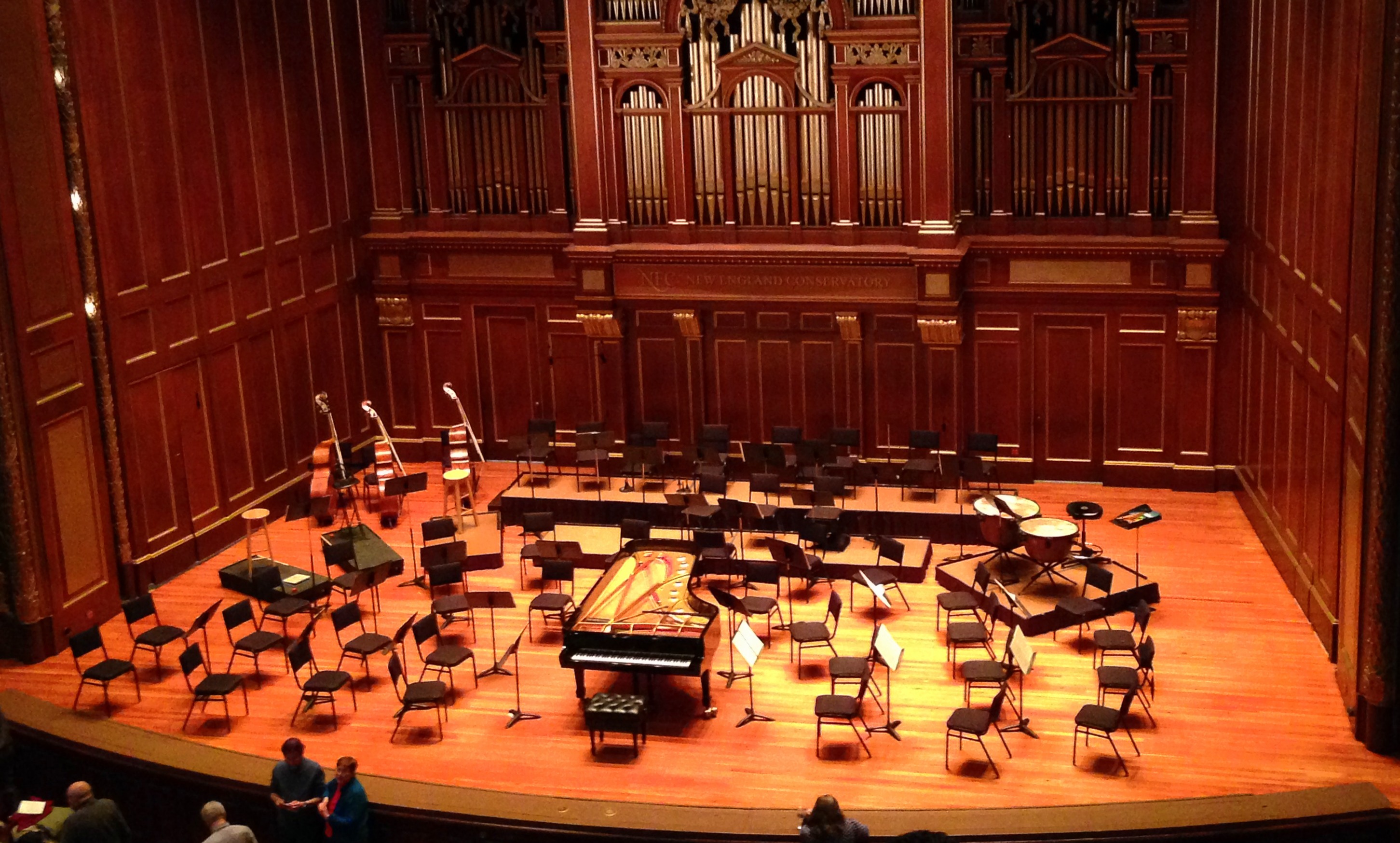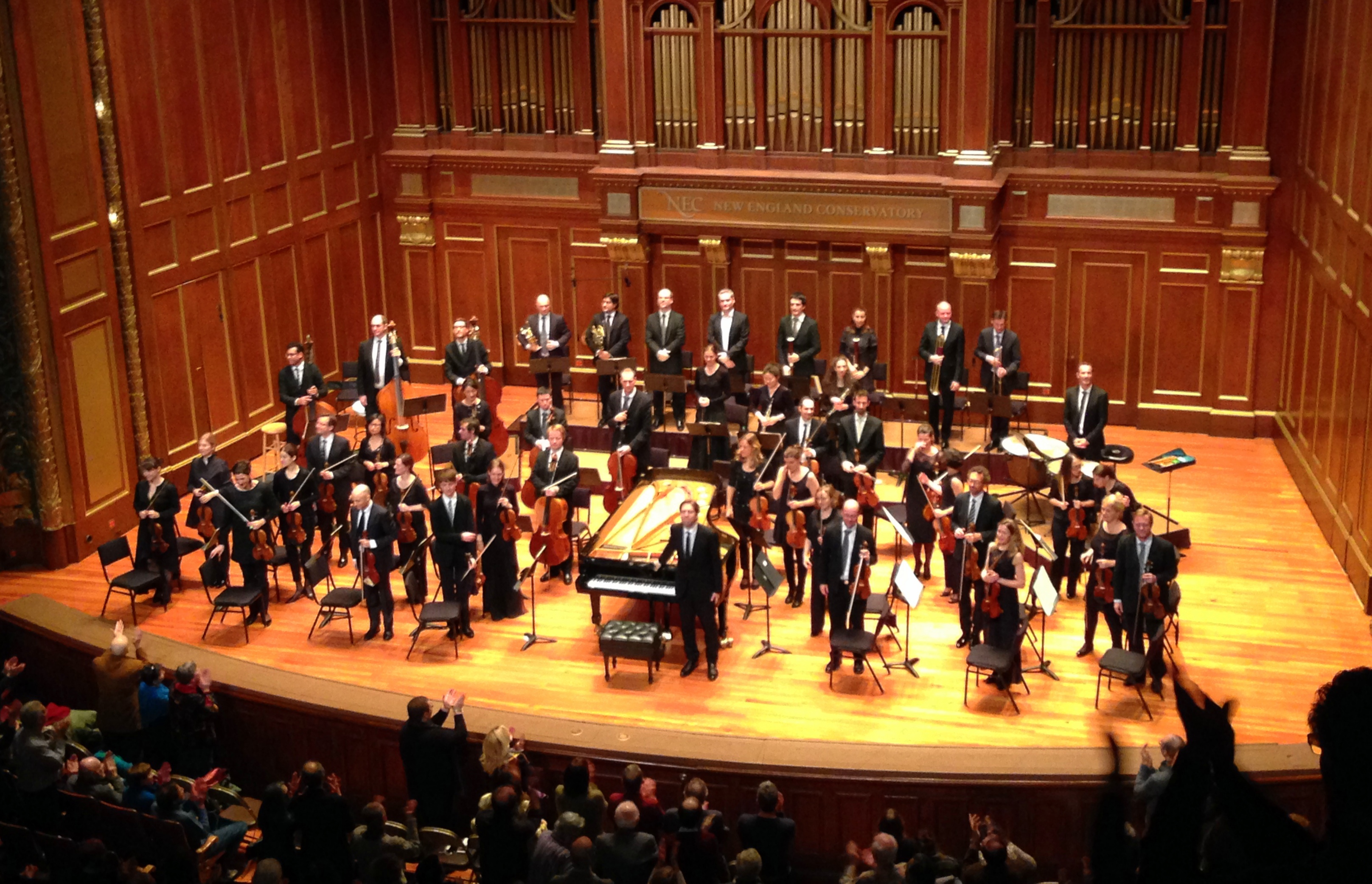Notions

February 24, 2015 / A Mutual Language
Yesterday afternoon we trudged through the snow and ice and crowded onto barely-running public transportation to get into the city for a concert.
We came to hear the Mahler Chamber Orchestra play three Beethoven piano concertos. Demanding of both performers and listeners. Complex, full of startling auditory surprises. We modern listeners know Beethoven, though—are even familiar with his music—as familiar as one can be as a mere listener. In his day though, audiences were confounded by his radical notions, at least upon first hearing. But nowadays the music language in which he spoke is known to many.
There on the stage were forty-five chairs and a grand piano. To applause, musicians appeared and took their places. They tuned, then brief silence. No one said anything, at least not in a verbal language. Then they took up their instruments, held them, cradled them, touched or plucked or struck or blew into them, and they began to speak the ineffable language of music, and we all understood what they were saying, and they understood each other.
The remarkable thing about all this is that the musicians in this orchestra come from eighteen countries on four continents, and among them speak at least a dozen verbal languages. But the little black marks of Beethoven’s score are written in that other language, and it doesn’t matter if the person reading them speaks in an Inuit tongue, or Tagalog, or Basque, s/he will speak music correctly, and translate Beethoven for us listeners. We may be native speakers of Yoruba, Hawaiian, or even English—but we can all understand what Beethoven says to us, across time and distance.
And even if the players had only just met each other at the moment they came onto the stage and engaged with the instruments, and did not exchange a single verbal word, nevertheless they would have spoken music together unerringly, by reading those little black marks.
Later that night, I saw a tv program in which musicians with Alzheimer’s disease were playing together, relishing their mutual musical language and expressing emotion through it. One man’s wife said, “This is how he speaks to me, now. It’s as if I have him back, a little.”
A scientist explained how musical memory lives in a different part of the brain from verbally-expressed memory. See how elegantly and widely accommodating our brains are! Isn’t it wonderful? Play on!
